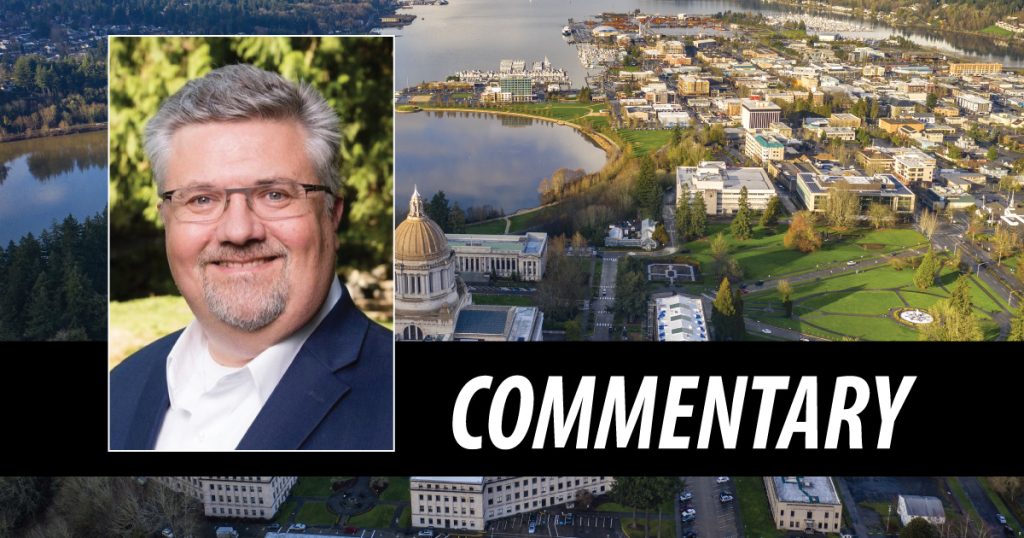When Jay Inslee took the job as Governor in 2013, the state’s annual operating budget was approximately $38.4 billion. After 12 years of the Inslee administration, the state is now spending almost twice as much per year, $75.5 billion.

Yet, despite this massive increase in state spending, legislators are claiming that they will need another $10-12 billion over the next 4 years to balance the state’s checkbook.
The state does not have a revenue problem, it has a spending problem.
Senator Jamie Pederson (D) told the Seattle Times that lawmakers may start to “explore’ new revenue sources such as a Wealth Tax. This is despite increases in multiple other taxes including the Paid Family Leave Tax, a 20% increase, and a near doubling of the CO2 tax subsequent to the voters rejecting Initiative I-2117 earlier this month. Estimates put the CO2 tax increasing to 45 cents per gallon.
All these taxes are taken from the paychecks of hard-working Washington taxpayers.
While lawmakers claim the state is facing a budget deficit as tax revenues are not sufficient, the real issue is the unrestricted growth of government driving up the costs.
An example of this uncontrolled growth is the rapid expansion of the number of state employees. Over the last 4 years, Washington has added 8,325 new employees, more than a 10% growth in government. Not all these new employees are essential to state government. Hidden within the agency budgets are big ticket items like the Diversity, Equity and Inclusion initiatives that according to state reporting has 75 state employees working on the program. Even a modest assumption on average employee salary equates to millions of dollars the taxpayers are paying for the program. That estimate doesn’t include the operating costs of the program itself and other employees that are roped in to help within each agency.
Another example of government bloat the Washington Policy Center previously reported on, is in education. The state has increased teaching staff by 25%, school principals by 42% and other administrative staff by 54%. Non-teacher staff positions increased a whopping 66%.
It’s not just state employees that are driving increasing costs, it’s the legislators themselves. Today a part time legislator receives a salary of $61,997 with a medical and pension benefit package costing an additional $30,000. By July 2026, the salary will be $71,126 putting a legislator salary, per-diem and benefit cost at over $110k. When you consider that legislators are in session for 60 days one year and 105 days the next, the hourly rate works out to be $123.
Not bad for a part time job.
The estimate is the recently passed state employee contract will increase the state budget by another $1.3 billion for 2025-2027. The increase has been made larger by the thousands of employees the state has hired in the last 48 months. It seems the budget deficit is a state-created spending problem that the state leaders don’t want to acknowledge.
The legislature should start using a zero-based budgeting process, where the budget is reset to zero every budget period and all expenditures have to be justified before being funded. Today, the legislature uses incremental budgeting which guarantees each budget will be bigger than the last.
This is one of the reasons state spending is out of control.
The Washington legislature needs to look hard at cutting discretionary spending, bloated government agencies and a zero-based budgeting process to balance the budget. Legislators should not default to increasing taxes for to pay for problems the state created.
The problem Washington will face if lawmakers can’t make the hard decisions, is that they will eventually run out of other people’s money.
By Mark Harmsworth, Director, Center for Small Business, Washington Policy Center

Mark Harmsworth was elected in 2014 to the Washington State House of Representatives where he served two terms. His focus was on transportation and technology, including serving as the ranking member on the House Transportation Committee.
Prior to the legislature, Mark served two terms on the Mill Creek City Council and was elected Mayor Pro-Tem in his last year.
He recently finish serving as a Director on the Everett Community College Foundation Board and currently serves as a Director on the Boys and Girls Club of Snohomish County.
Mark works in the technology industry and is an owner of a small business after completing a long career at Microsoft and Amazon.
Mark and his family live in Mill Creek, Washington.
COMMENTARY DISCLAIMER: The views and comments expressed are those of the writer and not necessarily those of the Lynnwood Times nor any of its affiliate
Author: Lynnwood Times Contributor













2 Responses
Rescind the tax break given 15 years ago that exempt google, microsoft, Boeing and amazon from paying their fair share. Stop passing the cost onto the average worker. Stop using stare employees as your whipping boy.
Taxing Boeing right now doesn’t seem rational, considering their predicament, and nor does it seem sensible to irritate Microsoft or Amazon who can easily transfer employees, and divisions, to other states. You also failed to rebut why the increase in government employees at a rate far greater than those of the private sector and the state’s population is logical.